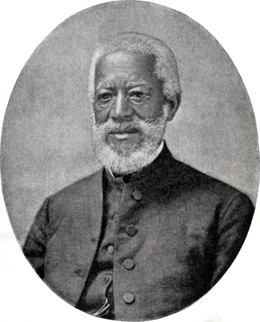Welcome to the geofictician wiki.
Luciano Doon d'Orange
Luciano Doon d'Orange (born 1840, Saint-Hubert de l'Açan, DB; died 1913, Bahía de la Jacaranda, DB) was a noted philosopher and author in the Ardisphere, who developed a significant body of work not just in epistemology but also in political theory and political economy, which had huge influence on the course of philosophy and political thought in the modern world.
Early Years and Education in Karolia
Doon was born to a landowning family in the Franquese-speaking northern edge of the Ardisphere in the earliest years of the Federation, when there was very little either culturally or politically to tie the far-flung region to the southern capital. Only 15 years old at the onset of the Ardispherian Civil War, he nevertheless enlisted in the military, against his parents wishes, serving as a sailor during a few of the naval battles on the Marverde (the largest of the Ardisphere's inland lakes) that occurred during the second year of the war. His father, a landowner, vintner and vociferous autonomist, disowned his son.
As a consequence, Doon traveled extensively after the war. He was exposed to many cultures and languages before concluding that he needed to further his education. He returned to the Ardisphere and enrolled in the Universidad del Boreal (now called Universidad Autónoma del Boreal). Completing courses in classics and philosophy, he showed such promise as a thinker that he was invited by a visiting professor from Karolia to return with him to that country and continue his studies at the Fontjäna Ünivërsitat. Despite his difficulty with mastering the Karolian language, he eventually graduated with a doctor of philosophy, and at age 30 accepted a teaching position there.
Return to Saint-Hubert
Only a year later, in 1870, however, he received a letter from his mother that his father, terminally ill, had repented having disowned his only son. She urged Doon to return home to Saint-Hubert. Resigning his professorship, he returned home (which at that time took several weeks, including sailing from Fontjäna to Villa Constitución and then taking the riverboat to Lagartópolis and thence by stage to Moyica) only to arrive two days after his father had died. His mother and relatives urged him to take on the famly mantel of running the family vinyards at l'Açan, and reluctantly, he did so. After several years, however, he felt compelled to return to academia, and entrusting the management of the estate to his aged mother and a venal cousin, he secured a teaching position at his undergraduate alma mater, the Universidad del Boreal.
Return to Academia
He remained affiliated with that university for the remainder of his career, despite several prominent visiting professorships at other institutions, including a return to Karolia and a year in Gran-Lusland. It is partly the legacy of Doon as an academic and world-famous author and philosopher that that institution even today enjoys a reputation far beyond that normally associated with a rural, public university far-removed from the capital.
Although Doon lost control of the family estate in the 1880s, he is said to have never regreted his return to academia. He was fond of telling his students that money was nothing ("El dinero no es nada."). He was active as a professor, writing reviews and for journals, well into his elder years, and died peacefully at age 73 in his modest home near the university campus in Bahía de la Jacaranda. That house is now a museum open to the public.
Legacy: Writings and Thought
Doon is most known for two works.
In epistemology, he authored the foundational work Verdades y Creencias (Truths and Beliefs), 1873. He is noted for the aphorism, "Creo que existo. Pues, existo. ¿Qué más necesito?"
In political theory, he wrote the three-volume study that provides some of the foundations of modern political economy, Los Laberintos del Poder (The Labyrinths of Power), 1884. His thinking is known to have influenced not just other philosophers but political activists such as Pancho Ulianov and the later president, Eva Shinoda, the founders of the modern Ardispherian Partido Socialista. The term "doonismo" (Doonism) is sometimes used (perhaps inaccurately it must be admitted) to indicate a certain philosophical stance vis-a-vis political economy, favoring social democracy, communitarianism, syndicalism and state-guided capitalism. Although all these ideas were developed at length in his book, Doon himself would no doubt have rejected the implication he was actually directly advocating for any of them - he presented his ideas as historically determined or evolutional rather than requiring advocacy, and himself favored a radical, dialectical approach.
